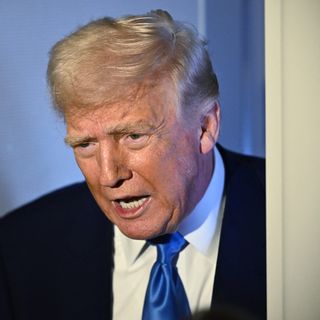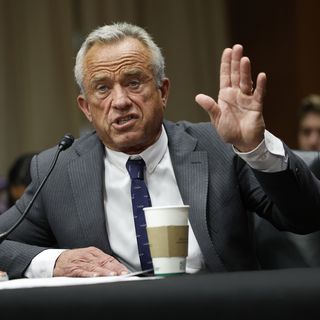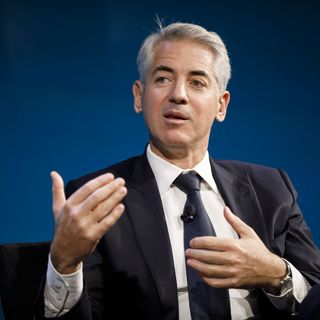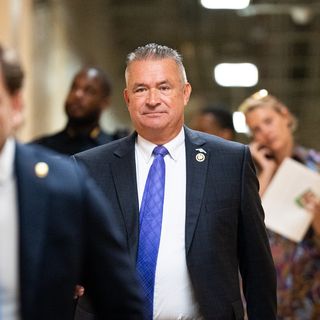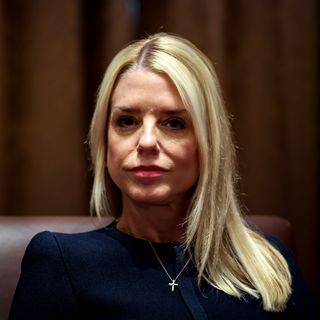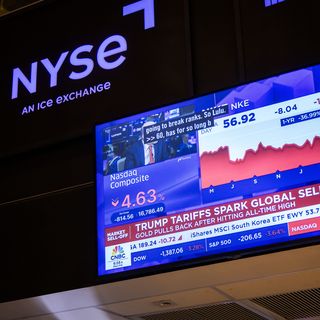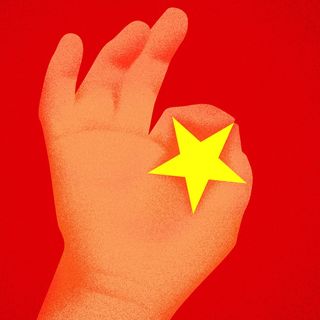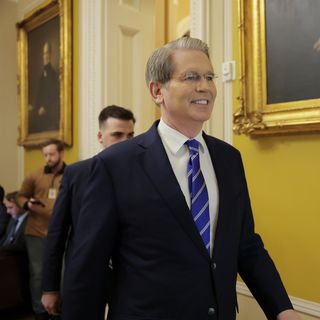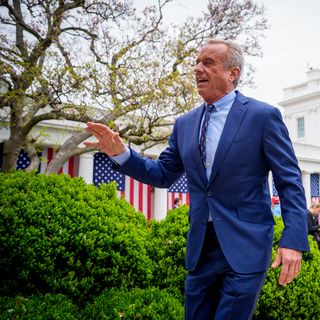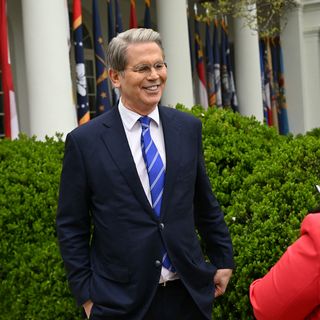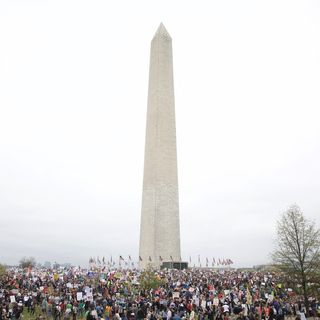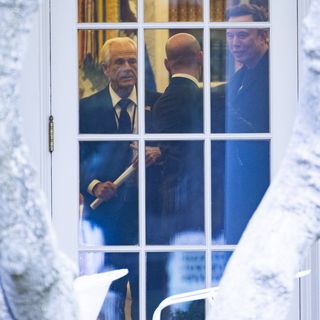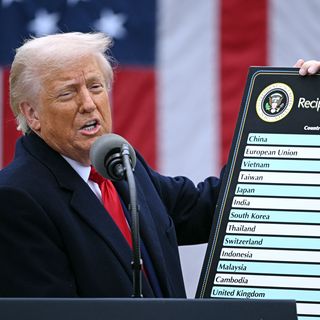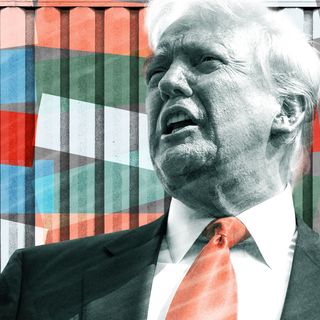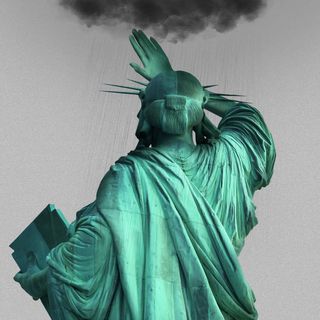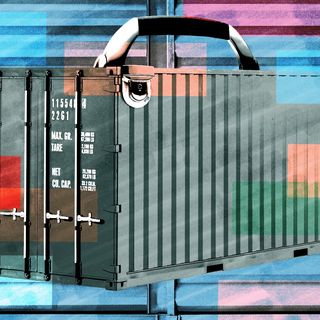Trump denies engineering market sell-off, says you have to "take medicine"
President Trump on Sunday denied engineering a stock market sell-off, and likened the pain of re-ordering the global economy to taking medicine for an illness.
Why it matters: After plunging Thursday and Friday, global markets sank even further Sunday night, threatening one of the worst three-day routs in history.
- Investors who spent all weekend hoping for some kind of policy reversal on tariffs realized that none was coming, and sold off across asset classes in earnest.
What they're saying: "I don't want anything to go down. But sometimes you have to take medicine to fix something," Trump told reporters on Air Force One, heading back to Washington, D.C.
- He denied crashing markets on purpose, saying "no, that's not so," after he shared a video on his social media accounts that suggested he was intentionally bringing markets down.
Zoom out: Trump's comments came hours after his topic economic advisers, in Sunday TV interviews, said markets shouldn't expect a rescue from the tariff-driven sell-off.
By the numbers: As of 8pm Sunday ET, early trading indicated U.S. stocks would open more than 4% lower, continuing a sell-off that already cost investors more than $6 trillion.
- The dollar continued to weaken, oil fell below $60 for the first time in years, and even tariff safe-haven gold sold off.
The intrigue: Billionaire hedge fund manager and Trump supporter Bill Ackman warned of an "economic nuclear winter" if the president didn't pause the tariff regime.
- Later Sunday, Ackman called the tariffs a "mistake" and said they were "massively in excess" of what the world charges the U.S.
Editor's note: This story has been updated with market details and investor comments.


